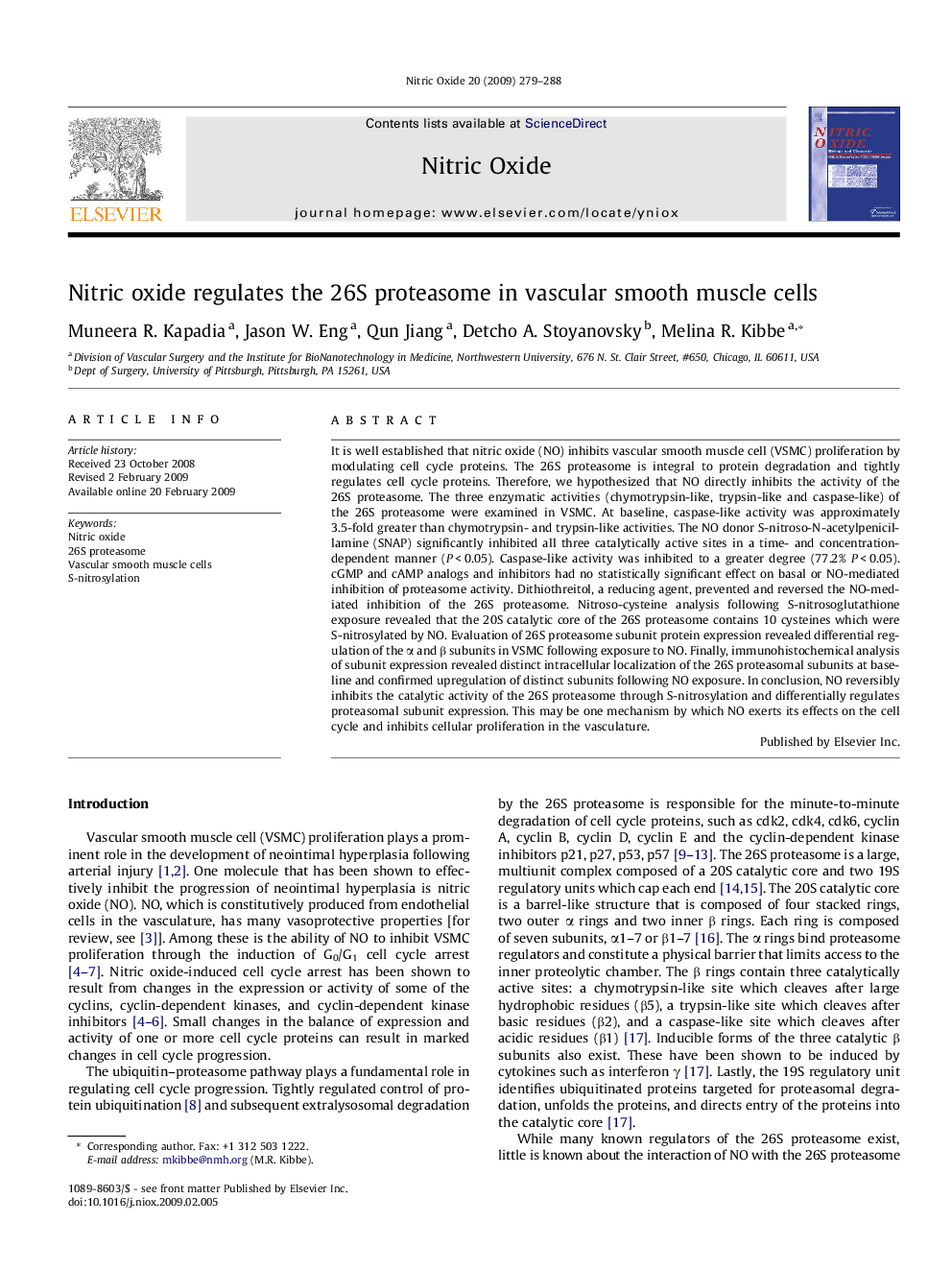| Article ID | Journal | Published Year | Pages | File Type |
|---|---|---|---|---|
| 2001942 | Nitric Oxide | 2009 | 10 Pages |
Abstract
It is well established that nitric oxide (NO) inhibits vascular smooth muscle cell (VSMC) proliferation by modulating cell cycle proteins. The 26S proteasome is integral to protein degradation and tightly regulates cell cycle proteins. Therefore, we hypothesized that NO directly inhibits the activity of the 26S proteasome. The three enzymatic activities (chymotrypsin-like, trypsin-like and caspase-like) of the 26S proteasome were examined in VSMC. At baseline, caspase-like activity was approximately 3.5-fold greater than chymotrypsin- and trypsin-like activities. The NO donor S-nitroso-N-acetylpenicillamine (SNAP) significantly inhibited all three catalytically active sites in a time- and concentration-dependent manner (P < 0.05). Caspase-like activity was inhibited to a greater degree (77.2% P < 0.05). cGMP and cAMP analogs and inhibitors had no statistically significant effect on basal or NO-mediated inhibition of proteasome activity. Dithiothreitol, a reducing agent, prevented and reversed the NO-mediated inhibition of the 26S proteasome. Nitroso-cysteine analysis following S-nitrosoglutathione exposure revealed that the 20S catalytic core of the 26S proteasome contains 10 cysteines which were S-nitrosylated by NO. Evaluation of 26S proteasome subunit protein expression revealed differential regulation of the α and β subunits in VSMC following exposure to NO. Finally, immunohistochemical analysis of subunit expression revealed distinct intracellular localization of the 26S proteasomal subunits at baseline and confirmed upregulation of distinct subunits following NO exposure. In conclusion, NO reversibly inhibits the catalytic activity of the 26S proteasome through S-nitrosylation and differentially regulates proteasomal subunit expression. This may be one mechanism by which NO exerts its effects on the cell cycle and inhibits cellular proliferation in the vasculature.
Related Topics
Life Sciences
Biochemistry, Genetics and Molecular Biology
Biochemistry
Authors
Muneera R. Kapadia, Jason W. Eng, Qun Jiang, Detcho A. Stoyanovsky, Melina R. Kibbe,
